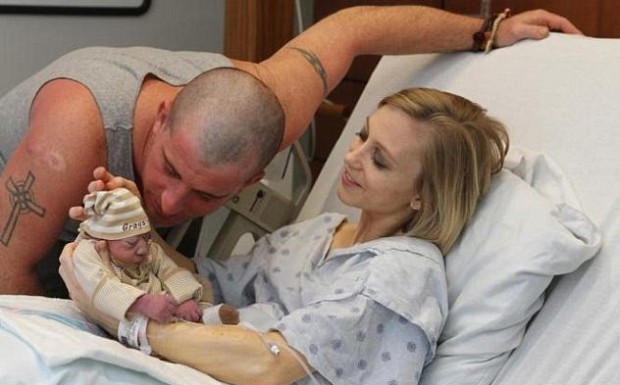 An increasing number of women are choosing to give birth at home, with or without the assistance of trained medical personnel. Women considering their options should make sure they thoroughly research the benefits and negatives associated with both home birth and hospital birth.
An increasing number of women are choosing to give birth at home, with or without the assistance of trained medical personnel. Women considering their options should make sure they thoroughly research the benefits and negatives associated with both home birth and hospital birth.
Understanding Homebirth
As comedian Jim Gaffigan so eloquently put it in his book, Dad is Fat, "Why didn’t you have the baby in that germ-infested building where sick people congregate? Didn't your wife want to give birth in a gown someone died in yesterday?" It may be blunt, but Gaffigan's phrasing represents what many homebirth advocates believe - and the trend is been on the rise. According to the Center for Disease Control, home births in the United States rose by 29 percent between 2004 and 2009, with the largest increase of (36%) being among non-Hispanic white women.
Women who attempt to go through with home birthing often have some common motivations - including less stress, a familiar environment, and feeling more in control of the birthing process. The prevalence of interventions and unnatural practices in hospitals - everything from IVs, confinement to beds, powerful pain medication, use of Pitocin, and C-sections - leaves many women wanting a more natural environment that allows the female body to work the way it was designed to. Many home births are attended by midwives, though most of the time there are no physicians present.
Here are some other reasons many women opt for home births in low-risk pregnancies:
- Avoiding the risk of infection possible in a hospital is one significant reason women opt for home birthing.
- Many women want to avoid the high costs that accumulate during the standard overnight stay in the hospital following childbirth.
- Some women want to relax with their newborn in the comfort of their own home - not be constantly interrupted for tests and checkups as in a hospital.
On the other hand, homebirth does carry significant risk for pregnancies that do not end up being "textbook". Even with screening to ensure that women who opt for homebirth are low-risk, according to the Mayo Clinic, the risk of newborn death is still more common in a planned homebirth than it is in a planned hospital birth. Conversely, the British Medical Journal published a study showing that for low-risk mothers, homebirth may be lower risk than hospital birth.
Either way, childbirth emergencies often occur very suddenly. If a woman opts for a homebirth, her time to transfer to the hospital in the event of an emergency is limited. Homebirth also limits the mother's access to pain medication. Childbirth is an intense experience, and some women may find that they are unable to cope with the pain - and at home, they have few medical options for relief.
Understanding hospital birth
Hospitals are where the vast majority of women choose to give birth. When women give birth in a hospital, their experience may vary widely depending on the institution's policies on issues such as movement during labor, birthing positions, and when C-sections are necessary.
Regardless, women giving birth in hospitals have immediate access to high-level medical care should the need for it arise. If problems develop during childbirth, an operating room can have a child out of the womb within minutes. Women with higher risk pregnancies will need to have access to medical care for the newborn and themselves upon birth, and hospital birth is typically the only option. And at a hospital, women have access to pain medication should they decide they need assistance coping with labor pains.
Some people argue that the easy access to medical care - in conjunction with old-fashioned impatience - may be one of the reasons for the high rate of interventions, both necessary and unnecessary, that occur in the United States. There are also places where women may not be permitted to go into labor in positions that feel the most comfortable to them, leading to increased discomfort.
Hospital birth versus homebirth is a controversial issue, with many studies showing the benefits and harm of each. Pregnant women should discuss the issue thoroughly with their healthcare provider to make the decision that will fit them and their medical situation the best.







